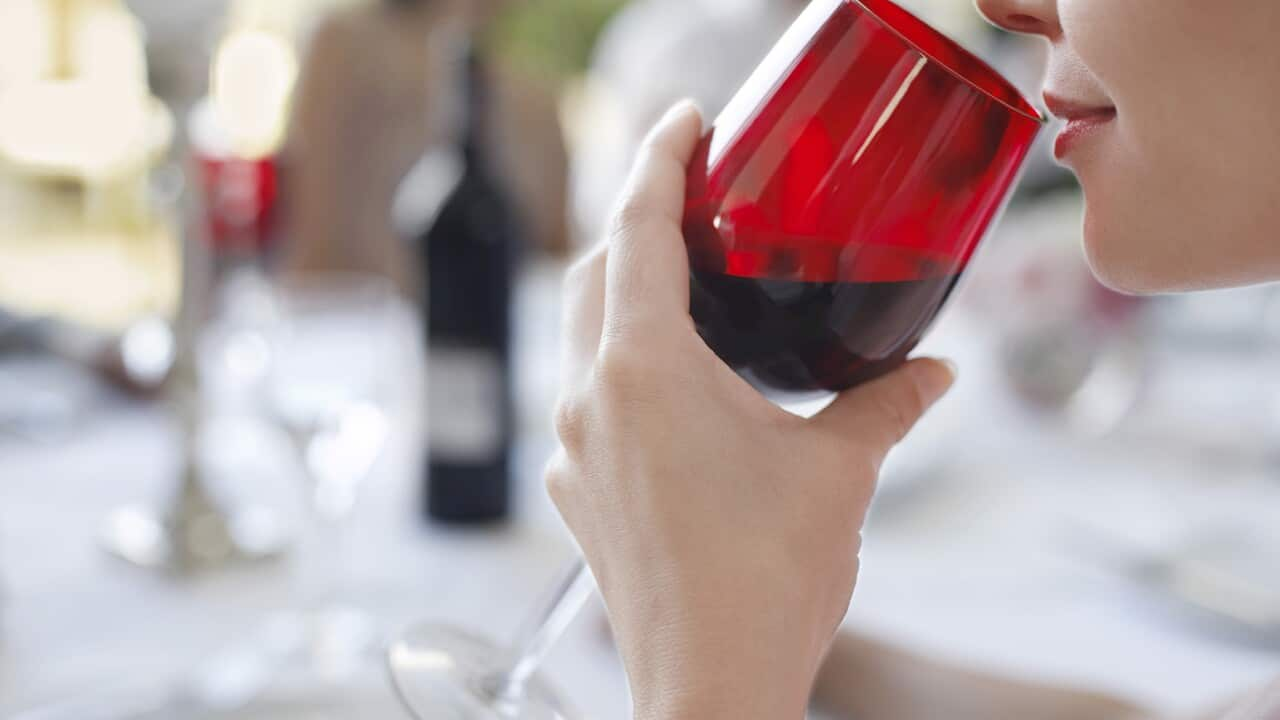From my late teens until my 30’s, I was solely a social drinker. I was the first to open a bottle with friends and rapidly consume it. Weekends were about letting myself go, and hangovers were managed with carb-laden foods and a selection of supposed cures.
However, in my early 30’s, my liquid diet had started to flow into the week.
One drink with dinner started to merge into two, and having a glass of alcohol in-hand while watching TV was as habitual as brushing my teeth - although without the same cleansing effect.
Alcohol had become my way of coping, a way to dull any sadness, anxiety and stress. Drinking was when I felt relaxed and the demons of depression scurried from my head. Plus, when drunk, I was extremely funny and danced really well.
One drink with dinner started to merge into two, and having a glass of alcohol in-hand while watching TV was as habitual as brushing my teeth - although without the same cleansing effect.
After almost 20 years of habitual ‘social drinking’, and becoming increasingly reliant on a cold one as an instant cure to all ills, I realised I wanted to break the habit.
The final straw came after a drunken tumble that resulted in me almost breaking my nose. Looking in the mirror the next morning, there was no escaping the reality of what I had done and what I had become.
So, six months ago I quit alcohol.
In today’s society, drinking is such an acceptable pastime that it’s rare to go anywhere where alcohol is not served. It’s the ‘norm’ to drink so much that karaoke seems like a great idea, as is waking the next morning with a memory as empty as your wallet. Yet the truth about alcohol consumption is not so funny. According to statistics collated by , alcohol kills 15 Australians every day, and 5,554 each year. It also hospitalises 430 Australians every day, and 157,132 each year.
According to statistics collated by , alcohol kills 15 Australians every day, and 5,554 each year. It also hospitalises 430 Australians every day, and 157,132 each year.

One drink with dinner started to merge into two, and having a glass of alcohol in-hand while watching TV was as habitual as brushing my teeth. Source: MOODBOARD/AAP
Statistics from the Australian Institute of Health and Welfare reflect similar results. show that 26 per cent of people consumed alcohol at harmful levels, at least monthly, and 18.2 per cent people consumed alcohol at levels placing them at of an alcohol-related disease or injury.
In fact between 2014-2015, 38 per cent of were primarily for alcohol, making it the most commonly treated drug in Australia.
It’s the ‘norm’ to drink so much that karaoke seems like a great idea, as is waking the next morning with a memory as empty as your wallet. Yet the truth about alcohol consumption is not so funny.
The longer-term risks are just as frightening.
Alcohol is responsible for contributing to many serious illnesses. These include cancers, cardiovascular disease, diabetes and digestive diseases, to name a few.
While I wasn’t aware of exact statistics related to the dangers of alcohol, I knew that it was unhealthy. But for me it wasn’t so much about the physical dangers, but the mental.
I knew that alcohol was exacerbating my existing mental health issues, particularly my depression and anxiety.
However, despite this, giving it up is not easy.
It took me about three months to break my daily habit. I had to keep my brain occupied on other things, especially at night, and resorted to chores, reading or box sets to pull me through.
Tea became my drink of choice and I stocked up on different types just to mix it up.
I joined a gym and went everyday and, subsequently, I became more conscious of my eating. Without the dull fog of a hangover leading me to carbs, it was easier, and I quickly noticed how much better I felt.
I was, and still am, less tired, cranky and fed up. My anxiety has lessened and my depression lifted.
However, going out socially was challenging, and still can be now.
To admit that you don’t drink is much like telling people that you never shower. They recoil in horror and find it impossible to understand. People probe and question and it feels like it’s never enough to say ‘I just don’t’.
But it is getting easier. I’ve gained more confidence socially, I find it easier to say ‘I don’t’, and people have stopped questioning so much. The novelty and weirdness factor for them is starting to wear off.
I’m far from alone in quitting the drink. There are many people I know of who’ve done, or are doing, the same. Plus, the emergence and popularity of movements such as and reflects a changing attitude.
To admit that you don’t drink is much like telling people that you never shower. They recoil in horror and find it impossible to understand. People probe and question and it feels like it’s never enough to say ‘I just don’t’.
In fact, a 2016 by LaTrobe University analysed the drinking habits of 124,440 Australians aged 14-79 years across 18 years. The findings revealed that Australia’s per capita alcohol consumption is at its lowest level since the 1960s.
Similarly, the report found that young Australians are drinking half as much as people their age were consuming a decade ago.
So, will I drink again in the future? Maybe I will, maybe I won’t.
For now, I’m happy as I am, and all I can say to that is cheers….with my tea that is!

